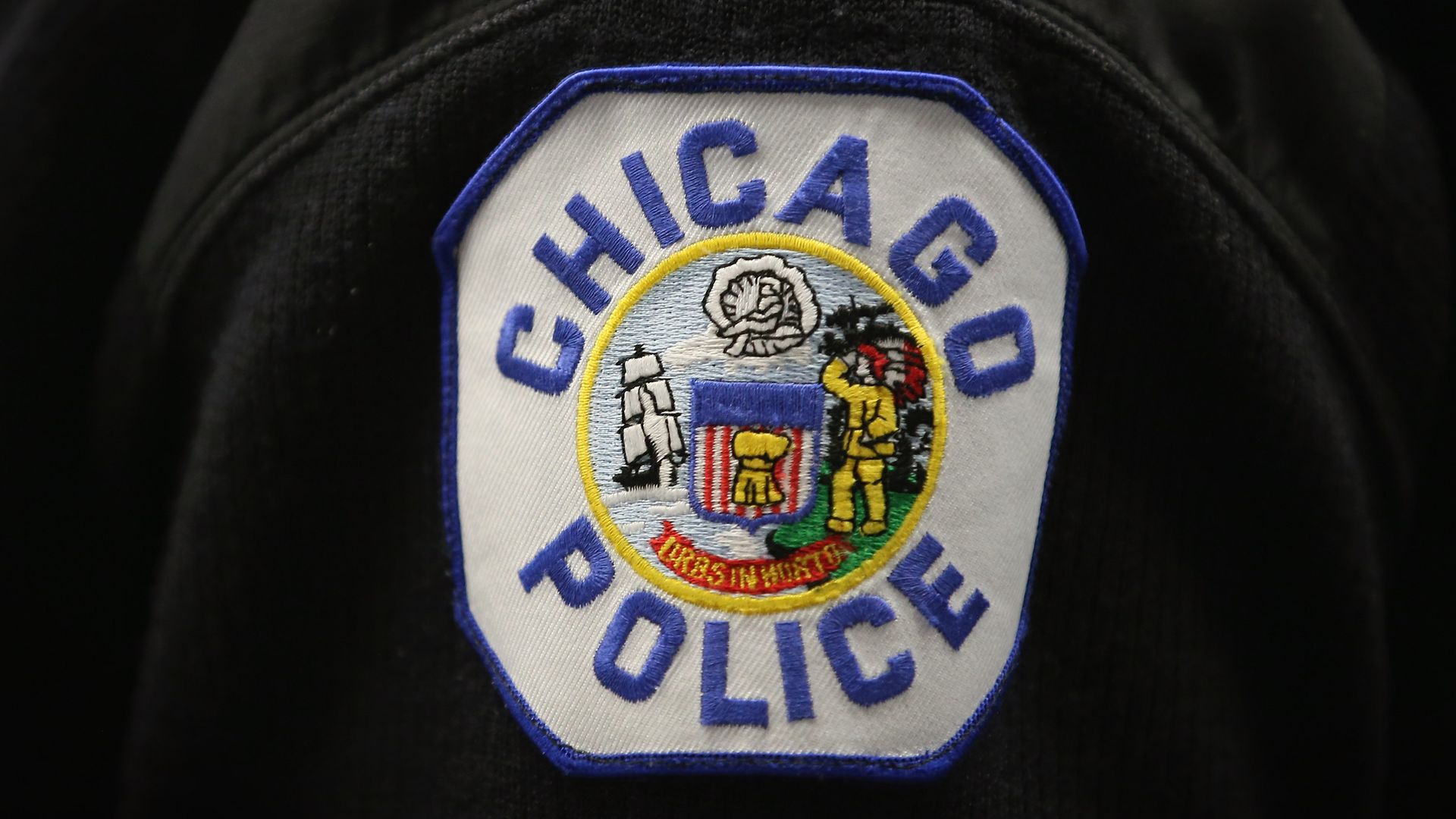Chicago mayor wants to crack down on moonlighting cops
Add Axios as your preferred source to
see more of our stories on Google.

Photo: Scott Olson/Getty Images
Mayor Lori Lightfoot wants the city to more closely monitor the lucrative side jobs Chicago police take on when they're off duty.
Driving the news: Chicago City Council approved a new police contract earlier this fall that includes updates on issues from raises to reforms — but not moonlighting.
Why it matters: Officers who take on side jobs as security pose a risk to taxpayers, who may be liable if something goes wrong on the job.
- "When you see them in hotels, bars, restaurants, other places, they look like they're on-duty police," Lightfoot told Axios in an interview last week. "And we [as a city] end up being liable in court for the work that they're doing that is not authorized by the department."
Context: According to a 2017 Chicago Reporter investigation, the Chicago police have one of the most lenient policies on side jobs in the country. Out of the 50 largest local and county law enforcement agencies, CPD is the only one that doesn't require officers to get approval to work a second job.
- And unlike most other big departments, Chicago doesn't place limits on how many hours officers can dedicate to a side gig. Lightfoot says at the very least she wants an accounting of these hours.
- Meanwhile, a 2017 Justice Department report on the Chicago Police Department says a significant amount of alleged police misconduct involves second jobs.
By the numbers: A search of job sites like indeed.com shows a healthy market for "off-duty" police officers. To work armed security, applicants can make anywhere from $30-$50 an hour, about what the average cop makes on-duty.
- The Chicago Reporter investigation notes that CPD doesn't take steps to limit its liability for off-duty misconduct. The city has paid more than $10 million in the last 15 years to settle at least 32 lawsuits against off-duty Chicago police officers.
Between the lines: Any new policy would have to be included in the Fraternal Order of Police (FOP) contract.
- "It's a risk management issue, and we're going to keep fighting for [more control] in arbitration," Lightfoot says.
The other side: The president of the FOP did not respond to multiple Axios requests for comment.
